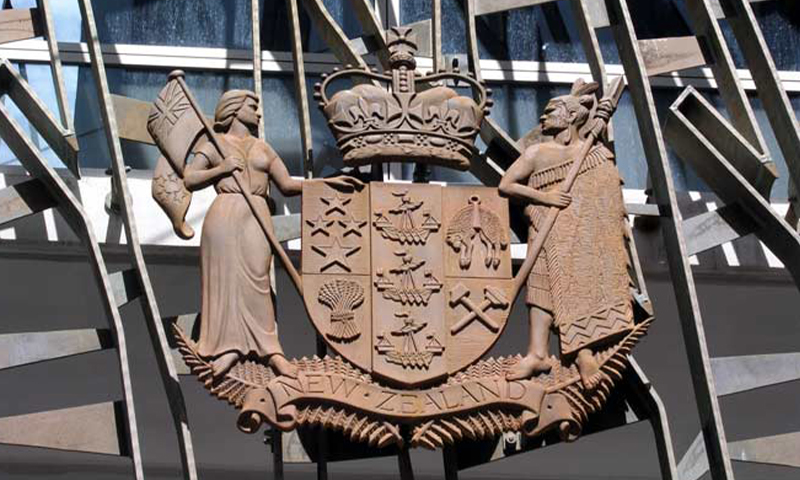
History
Tikanga is the set of the principles, practices and mechanisms by which a person or community determines the correct action in te ao Māori; that is, the Māori world. It includes but is not entirely customary law. So, when the common law arrived with British settlers in the early 19th Century, it recognised customary-law elements of tikanga on conventional colonial principles, at least until amended by statute (see Roberts-Wray Commonwealth and Colonial Law (London, Stevens and Sons, 1966) at 533). The foundational 1840 Treaty of Waitangi between Māori and the British Crown, which shared sovereignty and governance between the two signatories, seems intended to make clear that Māori would retain their customs and tikanga. And, in the early colonial period, a significant number of statutory instruments recognised its existence as a species of law: for example, the New Zealand Constitution Act 1852 allowed (at s 71) the monarch, by letters patent, to set aside districts of New Zealand that would observe Māori law and custom, albeit no such districts ever emerged.
Whatever liberal sentiment the Colonial Office initially possessed ran headfirst into a desire by colonists themselves for Māori land and resources. In a now-infamous 1877 decision, Wi Parata v The Bishop of Wellington (1878) 2 NZ Jur (NS) 72 (SC), the New Zealand Supreme Court explicitly rejected the idea of Māori possessing a body of customary law. The Privy Council, conversant with practice across the empire, subsequently rejected this conclusion in 1901 (Nireaha Tamaki v Baker [1901] AC 561 (PC)). But, from the 1860s various forms of dispossession, largely of land, continued apace and unobstructed by tikanga principles premised on collective not individual ownership. It was not until the 1980s, more or less, that a trickle of cases and pieces of legislation began to re-engage with the issue. For a full history, read Nuku Tau’s, A Nation Cast Adrift? A Legal and Historical Analysis of Tikanga Māori for the Purposes of General Common Law Application (2022) 29 Canterbury L Rev 115.
The Ellis Decision
Peter Ellis was convicted of sexual offending against young children in 1993. His case was well known. His subsequent appeals to the Court of Appeal were unsuccessful, but he maintained his innocence. In 2019, Ellis – now on parole but dying of cancer – obtained leave to appeal to the Supreme Court and an extension of time to do so. Ellis died before the Supreme Court could hear the substantive appeal.
The Supreme Court needed to determine whether Mr Ellis’s appeal should continue after his death. In determining this question of continuance, the court sought submissions and evidence on whether tikanga principles might affect the approach of the common law. Following a further hearing, by majority, the court held that tikanga was not material to this particular common-law rule. But it did hold unanimously and clearly that tikanga would continue to be recognised in the development of the common law of New Zealand in cases where it was relevant (Ellis v R [2022] NZSC 114 at [19]). Thus, it made the issue of tikanga and its frontiers one of the most significant issues in contemporary New Zealand law. It also ultimately concluded that Mr Ellis’ appeal should continue on common-law principles and went on to quash his convictions.
The Professional Examinations in Law (Tikanga Māori Requirements) Amendment Regulations 2022
In May 2023, the New Zealand Council of Legal Education, which sets the curriculum for legal study in New Zealand, made tikanga Māori a core subject in law schools from 2025, through what I will refer to as the Tikanga Regulations. This change had been on the cards for several years before the Ellis decision, but the consultative process needed to amend the necessary regulations meant that that confirmation of the amendment followed relatively shortly afterwards. The Law Commission released a comprehensive paper on tikanga principles that September: He Poutama(NZLC SP24).
The next month, New Zealand’s proportional electoral system produced a right-leaning coalition of parties in government. Among other policies, it committed to introducing a Bill (now the Treaty Principles Bill) that would dilute guarantees made to Māori in the aforementioned 1840 Treaty of Waitangi about the protection of their chiefly authority, possessions and treasures. The Bill seems unlikely to become law. But it has sparked widespread protest and provided a charged backdrop to current discussions of how tikanga principles are incorporated into a common-law system. Indeed, in May of this year, a New Zealand King’s Counsel suggested in a law-society magazine article that the Parliament Regulations Review Committee—which scrutinises delegated legislation—should investigate the Tikanga Regulations and recommend to Parliament they be disallowed. This committee took up the invitation and sought submissions.
The series of events has unhappily politicised the law-school curriculum. At the time of writing, the committee has yet to hear the matter, although the Legal Council has provided a response, which is linked here. It seems difficult to argue with its observation that while other members of the legal community can freely criticise court decisions and Acts of Parliament—and query whether they rightly shape the law—the Legal Council cannot: it is required to determine what core competencies a lawyer must have. And it seems reckless to conclude at this juncture that future lawyers can competently advise without firm knowledge of how tikanga can shape law in Aotearoa.

William is a partner at the New Zealand law firm of Meredith Connell specialising in litigation, white-collar and fraud work. He was Called to the English Bar in 2017 and the Bar of the Pitcairn Islands in 2023.




